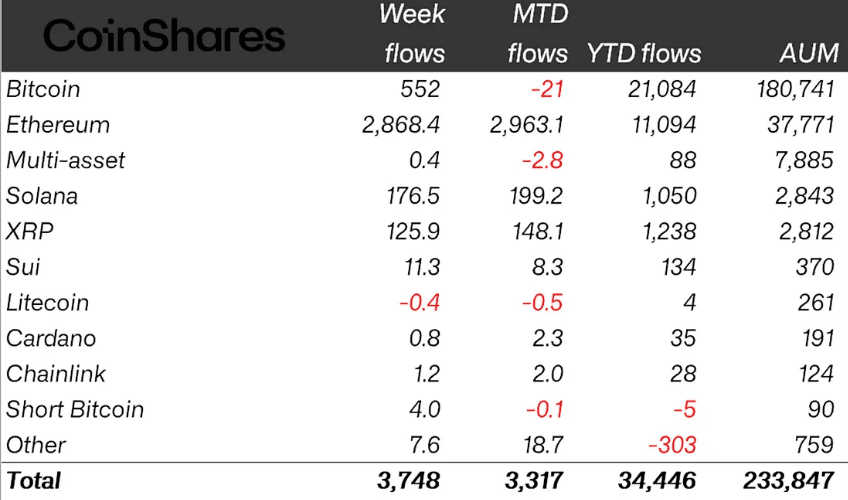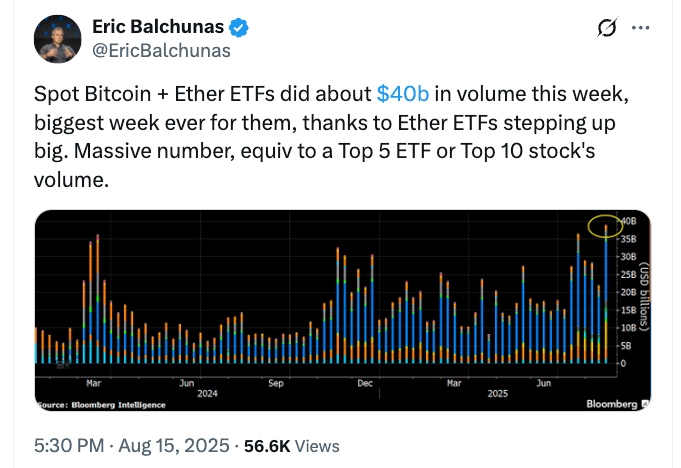Despite Bitcoin reaching a new high of over $124,000, while ETH is only close to its historical peak, Ether continued to dominate ETP inflows last week.
Cryptocurrency investment products welcomed another week of strong inflows, mainly driven by Ether exchange-traded products (ETPs).
European crypto asset management firm CoinShares reported on Monday that global crypto ETP inflows reached $3.75 billion for the trading week ending Friday.
The inflows came as Ethereum experienced a strong bullish momentum; according to CoinGecko, Ethereum's price approached $4,700, above its historical peak, on Thursday.
However, after four days of inflows, investor sentiment turned negative, with SoSoValue reporting outflows from Ether funds on Friday.
Despite Bitcoin ETP prices surpassing $124,000, inflows remained moderate.
Despite Bitcoin soaring above $124,000 on Wednesday, BTC failed to significantly boost ETP inflows last week, with total inflows of $552 million, accounting for about 15% of the weekly total.
Ether had the largest price increase last week, with total inflows reaching $2.9 billion, indicating growing investor interest in altcoin ETPs.

SOL and XRP saw inflows of $176.5 million and $125.9 million, respectively. Litecoin had outflows of $400,000.
The highest trading volume week in history
According to Bloomberg ETF analyst Eric Balchunas, last week was the week with the highest trading volume for spot cryptocurrency exchange-traded funds (ETFs).
Balchunas wrote on X on Friday that after just four trading days last week, the trading volume of spot Bitcoin and Ether ETFs reached $40 billion, mainly due to the 'significant growth of the Ether ETF.'
He said: 'ETHSANITY: The weekly trading volume of the Ether ETF is about $17 billion, breaking records; it really took off in July.'

NovaDius President Nate Geraci also highlighted the trading volume record on X and noted that the spot Ether ETF 'completely shattered the previous weekly trading volume record.'
He added: 'I don't know if anyone still opposes the idea of 'no demand'.'




